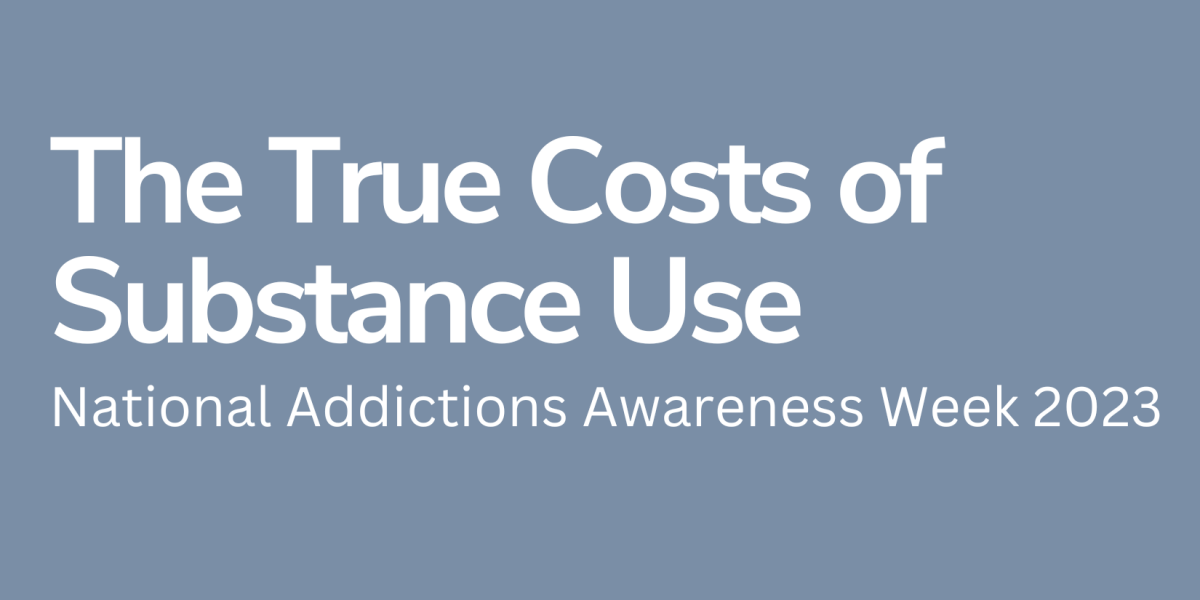National Addictions Awareness Week is observed each year at the end of November. As we wrap up this awareness week, MFHT wants to provide insights to help our communities better understand how substance use impacts our communities.
First, let’s define substance use. It refers to the consumption of drugs, alcohol, or other substances that can alter a person’s thoughts, feelings, or behaviors. People may use substances for various reasons, such as seeking pleasure, relaxation, stress relief, or escapism. However, substance use can lead to addiction or dependence, resulting in harm to an individual’s health, relationships, and overall well-being.
This year’s focus for National Addictions Awareness Week was on understanding the costs and harms associated with substance use. Substance use is a complex challenge that significantly impacts both our health and society’s expenses. Additionally, people who want to quit using pain medicines have two options: seek painkiller addiction help. Including medications and detox.
Why is it important to understand the harms and costs of substance use? Because it is crucial to implementing comprehensive and effective strategies that address prevention, treatment, and support for individuals and communities affected by substance-related issues.
In Ontario, the harms and costs related to substance use are $18 billion! These costs stem from reduced productivity, strains on the healthcare system, and issues in the justice system.
Let’s break it down:
- Lost productivity: This includes the value of work lost due to premature deaths and long-term/short-term disability linked to substance use. In Ontario, lost productivity accounts for $7.9 billion, or 44% of the total cost of harms related to substance use. Alcohol and tobacco cause 60% of all these productivity costs, while opioids, even though causing fewer deaths, lead to the highest costs due to premature deaths.
- Healthcare costs: The cost of harms due to substance use in healthcare amounts to $5.03 billion, representing 27% of the total cost. This includes expenses on hospital stays, emergency visits, medication, day surgeries, paramedics, and specialized treatments for substance use. Alcohol and tobacco contribute to 87% of all healthcare costs related to substance use, with opioids following closely behind.
- Legal system impact: Substance use also affects our legal system, and the cost of harms associated is $3.9 billion, or 22% of the total cost. This includes the money spent on police, courts, and correctional services dealing with crimes related to substance use, like impaired driving, drug offenses, and crimes partly caused by substance use, such as violent crimes, homicide, arson, and theft.
- Hidden costs: Apart from direct productivity, healthcare, and legal expenses, other hidden costs in Ontario amount to $1.2 billion. These include funds allocated for research, prevention, social assistance for disabilities due to substance use, and workplace costs not accounted for in lost productivity, such as drug testing and employee assistance programs.
While these numbers might seem overwhelming, there’s hope for change. By putting effort into preventing substance use and offering support, we can make a difference. It’s our responsibility to create a society that not only deals with the problems caused by substance use but also actively works to prevent them.
At MFHT, we are actively trying to support our communities by providing services to support those who require substance use care. One of our strategic directions on our 2023-2026 strategic plan is to expand and enhance our local mental health and addiction supports and services. Our Mental Health and Addictions Committee works closely to monitor how addiction and substance use are affecting our community and is constantly evolving in best practices for substance use care. Lastly, MFHT hosts the Marathon RAAM Clinic. The Marathon RAAM Clinic offers rapid access to addiction services that are low barrier and at no cost. The RAAM Clinic provides an array of services, including withdrawal management, peer support, mental health counseling, treatment planning, overdose prevention, and opioid agonist therapies.
By investing in prevention, understanding, and support, we can shift the narrative. Our collective responsibility lies in building a society that not only addresses the consequences of substance use but actively works to prevent them.
Submitted by
Richelle Kelly
Addictions Program Care Coordinator



